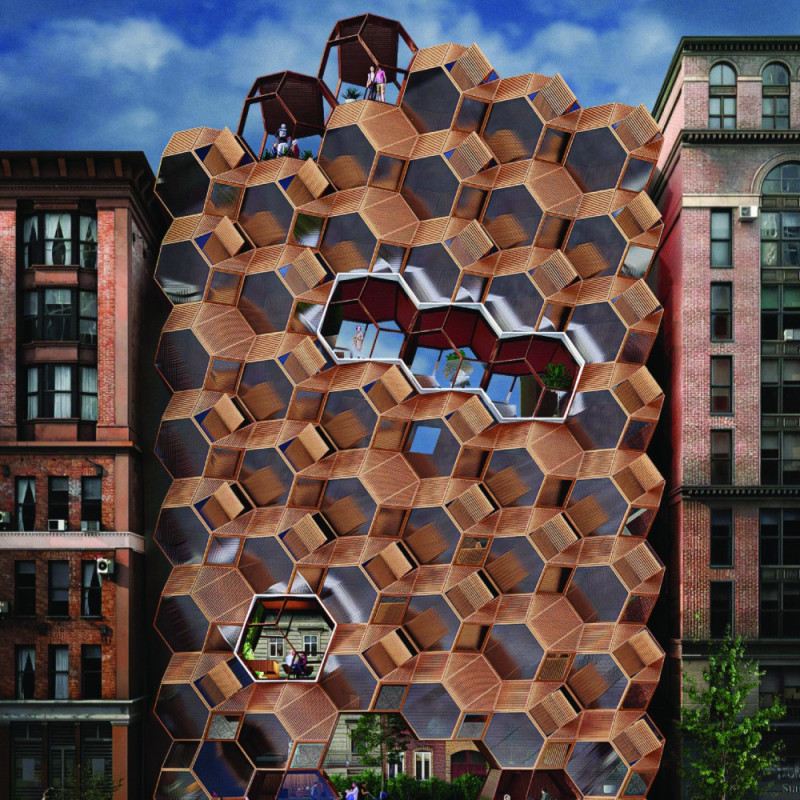5 key facts about this project
A systematic approach to affordable housing in Berlin addresses the need for effective residential options in an urban setting. The focus is on prefabricated modular units, designed specifically for urban infill. This design aims to improve the city's character while providing essential living spaces. It seeks to create functional and adaptable environments that serve a diverse range of residents, including singles, couples, and small families.
Modular Housing Design
The design centers around compact modular units that maximize the use of space while ensuring essential amenities are included. Each unit features a three-piece bathroom, a loft bedroom, a built-in kitchen, and adequate storage. A key element is the common area, which can easily convert into a second sleeping space to accommodate various household types. This flexibility is particularly beneficial for single parents and small families, offering a practical living solution in the city.
Community Integration
The design emphasizes community interaction, incorporating communal units throughout the site. These upper-level communal spaces provide work areas, laundry facilities, and outdoor gathering spots, encouraging residents to connect with one another. Ground-floor communal units are designed to serve as spaces for resident-run businesses, such as cafes and shops. This focus on shared resources enhances both the living experience and the economic viability of the neighborhood, helping to foster a lively community atmosphere.
Urban Infill Application
The project addresses the challenges of urban infill, aiming to create diverse living conditions without leading to social segregation. The modular design is adaptable, allowing for easy adjustment to different sites across Berlin. This responsiveness ensures that each location’s unique features are taken into account. The layout encourages communication and fosters inclusiveness, working against the common issues of traditional affordable housing developments.
Materials and Construction
Construction relies on prefabricated components sourced from various manufacturers, including exterior walls and important interior elements like kitchens and storage solutions. Using such materials allows for efficient assembly and quick installation. This approach enhances the quality of construction while meeting the increasing demand for housing. The effective use of prefabrication ensures that the building process remains streamlined and consistent.
The final design prioritizes not only immediate housing needs but also the creation of supportive community spaces. Each aspect, carefully considered and articulated, contributes to a living environment that accommodates a diverse urban population.


















































